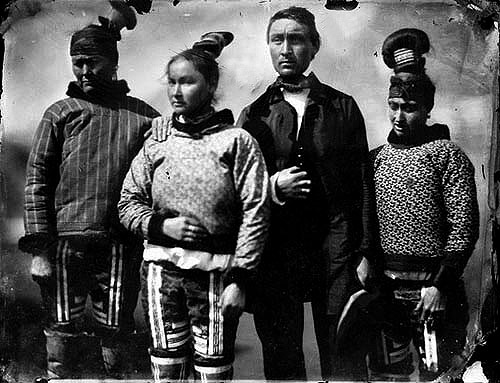A dark shadow hangs over this province, as many Quebecers overlook the fact that these lands were once inhabited by a thriving indigenous population, prior to the arrival of Europeans in the 15th and 16th centuries.
There are approximately 1.4 million individuals who identified as Indigenous on the 2011 National Household Survey, representing 4.3 per cent of the Canadian population, according to Statistics Canada.
Furthermore, in Quebec, the indigenous population is approximately 104,633, representing two per cent of the provincial population, according to data from the Quebec government.
Yet, education surrounding aboriginal issues is constantly disregarded and evaded—in order to pander to Quebec’s sovereignty debate. Many of us here at The Concordian do not recall ever learning about the atrocities that greatly affected First Nations populations in elementary or high school history classes, such as the implementation of the Indian Act or residential schools.
How could it be that many of us are uneducated about these events and their horrific impacts until we reach adulthood?
Lack of education surrounding First Nations history and culture continues to persist for children growing up and learning today. A new history curriculum for high school students was unveiled earlier this year, after being conceived by the previous Parti Quebecois government under Pauline Marois.This curriculum virtually excludes all minority and aboriginal narratives, according to CBC News.
This curriculum is absolutely unacceptable and insulting, because the indigenous communities played a massive role in both Quebec and Canada’s history, and continue to do so today.
This was also a major aspect of the Truth and Reconciliation Commission, which issued a call to action, and strongly urged governments place a greater emphasis on First Nations history.
The Truth and Reconciliation Commission, also referred to as the TRC, was created to understand and investigate almost a century of misconduct towards First Nations’ children in the residential school system. The commission was launched in 2008 and a final report was released last December, providing evidence there was indeed a cultural genocide in Canada against the indigenous peoples.
Quebec Premier Philippe Couillard acknowledged the findings of the Truth and Reconciliation Commission and admitted there was indeed a cultural genocide in this nation for more than a century, according to another report by CBC News. In the same report, the premier even stated his government needed to work more closely with indigenous communities across the province.
It’s highly hypocritical, to say the least, to green light an educational pilot project that essentially misinterprets our province’s past and oppresses several minority groups, including First Nations.
If we look within our own university, we can see there is progress being made compared to our own government. Concordia University just announced the creation of Truth and Reconciliation Leadership Group last week, which shall advise the university’s provost regarding a wide range of indigenous affairs. The group will be comprised of Elizabeth Fast, an assistant professor of Applied Human Sciences, and Charmaine Lyn, the senior director of the Office of Community Engagement.
Even though our university is slowly taking initiatives, we cannot let the rest of our society fall behind. Considering our own government cannot provide a proper educational history, The Concordian suggests that every citizen take it upon themselves to learn about First Nations history and culture—be it through books, articles, or the talks and events that take place at Concordia, like the one we covered this week, “Cree Ways of Knowing.” We also have a First Peoples studies program, and some classes are available as electives for those who are not in the program.
We cannot ignore the past, nor can we simply brush off the original inhabitants of these lands in order to address other political agendas.




